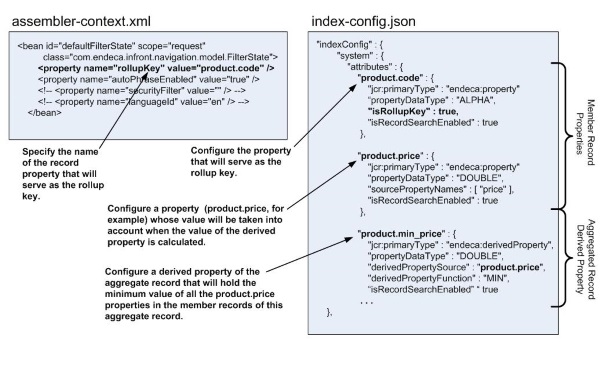You can optionally configure a derived property to add to an aggregated record. You configure the value of the derived property to be the minimum, maximum, sum, or average of the values of a specified property of the member records.
The value of a derived property is calculated at runtime. If you refine your search by clicking additional or different dimension values, the value of the derived property is recalculated to reflect the resulting changes in the set of member records.
The following diagram illustrates the changes that you must make to
assembler-context.xml
and index-config.json to configure an
aggregated record with a derived property:
To add a derived property to the configuration of an aggregated record, follow these steps:
Configure a property whose value will be taken into account when the value of the derived property is calculated.
Configure a property whose
derivedPropertySourceparameter specifies the record property whose value will be taken into account when the value of the derived property is calculated. This is the derived property.
For example, suppose that the member records for an aggregated record
representing "Frederick's Castaway Boat Shoe" have the following values for
their
product.price property: 24.00, 89.95, and 120.00. At
runtime, the
product.min_price property of the aggregated record
will be set to 24.00, the lowest of the three prices.
Note
Derived properties cannot be used for record sorting.


